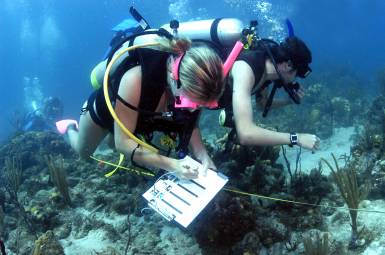Marine Biology Schools in Europe: A Detailed Exploration
 Posted date: 13 May 2024
Posted date: 13 May 2024
Marine biology Schools in Europe offer an exciting avenue for students driven by a passion for ocean conservation. The continent's rich coastline and advanced research infrastructure make it a prime location for studying marine life and ecosystems. This article will provide an in-depth overview of marine biology programs in Europe, covering program types, top countries, specialization branches, tuition fees, scholarships, and global career prospects.
Types of Programs:
Marine biology studies Europe encompass a wide range of academic offerings, including undergraduate degrees, master's programs, and Ph.D. opportunities. These programs typically integrate classroom learning with practical fieldwork and research experiences. Students can choose from various specializations, such as marine ecology, conservation biology, oceanography, marine biotechnology, and marine genetics.
Leading European Countries for Marine Biology Education
Several European countries stand out for their exceptional marine biology programs. The United Kingdom hosts renowned institutions like the University of Southampton and the University of Exeter, known for their marine science departments. Norway, with its extensive coastline and marine research facilities, is another top destination, featuring institutions like the University of Bergen. Germany, Spain, and Portugal also offer excellent programs in marine biology, attracting students from around the world.
What subjects do I need to study marine biology in Europe ?
Marine biology encompasses diverse branches and study streams, each focusing on different aspects of marine life and ecosystems. Marine ecology explores the interactions between organisms and their environments, while marine conservation focuses on preserving and restoring marine habitats and biodiversity. Other branches include marine genetics, marine microbiology, marine physiology, and marine biogeochemistry. Students can tailor their studies to align with their interests and career goals, selecting specialized courses and research projects.
Tuition Fees and Scholarships:
Tuition fees for marine biology programs in Europe vary depending on factors such as the country, institution, and level of study. In the United Kingdom, for example, undergraduate tuition fees for international students can range from £9,250 to £22,000 per year. However, many universities offer scholarships, grants, and funding opportunities to support talented students. These scholarships may cover tuition fees, living expenses, and research costs, making marine biology education more accessible to a diverse range of students.
Global Job Prospects:
Graduates of marine biology programs in Europe enjoy diverse career prospects worldwide. They can pursue careers in research institutions, government agencies, non-profit organizations, consulting firms, and academia. Job roles include marine biologist, oceanographer, marine conservationist, fisheries biologist, marine resource manager, environmental consultant, and marine educator. Salaries vary depending on factors such as education, experience, location, and employer. Entry-level positions typically offer salaries ranging from £18,000 to £25,000 per annum in the United Kingdom, with experienced professionals earning upwards of £45,000.
Marine biology Schools in Europe provide students with a comprehensive education in ocean conservation and research. With a diverse array of programs, top-tier research facilities, and global career opportunities, European universities are at the forefront of marine science education. Whether students aspire to explore marine ecosystems, contribute to conservation efforts, or address pressing environmental challenges, studying marine biology in Europe offers a pathway to a rewarding and impactful career in the field.
Posted By

GSP Admin




